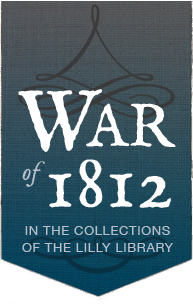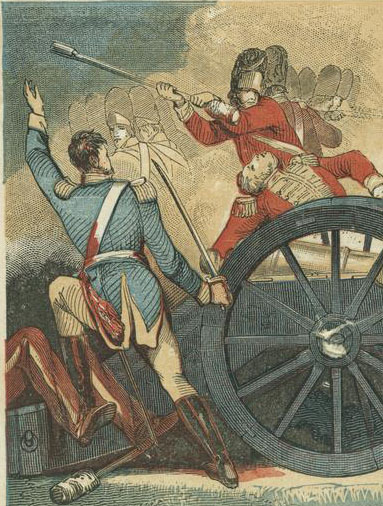Niagara Frontier 1814
Battle of Chippewa — Battle of Lundy’s Lane — Battle of Lake Champlain — Battle of Plattsburg
The summer of 1814 saw another American foray into the Niagara frontier. Brigadier General Winfield Scott sent a company of approximately 3,500 men led by Major General Jacob Brown across the Niagara River into Upper Canada to seize Fort Erie. They easily took the Fort and continued to push north looking for the main British force. They found the enemy on July 5, 1814, and now joined by General Scott and 1,000 regulars, the U. S. army confronted British forces led by General Phineas Riall. The two armies were of comparable size, but Scott’s well-trained troops surprised the British and forced them to retreat. The U.S. victory at the Battle of Chippewa was the first time the United States had defeated British forces in an equal contest on open ground.
Brown continued to push northward with his troops, confronting British forces again in the bloodiest battle of the war at Lundy’s Lane. Here the American troops overran part of the British line but were unable to gain control of the field during a day-long battle whose sound was nearly drowned out by the noise of the nearby Niagara Falls. Brown’s forces eventually returned to Fort Erie. Nearly 1,700 soldiers died at Lundy’s Lane, evenly split between both sides, and the U.S. push into the Niagara frontier was effectively stalled.
In the fall of 1814 British North American forces led by Governor-General George Prevost invaded upstate New York, marching south seeking to control the Lake Champlain region and prevent further U.S. incursions toward Montreal and Quebec. On September 11, 1814, Prevost was poised to attack the U.S. position at Plattsburg, while on the lake, Captain George Downie led a British squadron to attack U.S. navy ships stationed near Plattsburg. The British army was much larger than the American forces in place and stood a likely chance of taking Plattsburg if events on the lake had not interfered. The fighting between the two squadrons on Lake Champlain was fierce. The two sides exchanged heavy artillery fire, and the British captain Downie was killed. Heavy fire had disabled the flagships of both nations when Master Commandant Thomas Macdonough turned the tide of the battle. Using a “winding” maneuver, he turned his flagship U.S. Corvette Saratoga and exposed fresh guns on the British shop Confiance. The British ship could not respond in kind, and most of the British squadron surrendered. Back in Plattsburg, upon seeing the surrender of the British squadron, Prevost withdrew his troops. He was criticized for retreating when his army could have overtaken the smaller American force, but Prevost was concerned that U.S. control of the Lake Champlain would cut his lines of supply.
Related Items
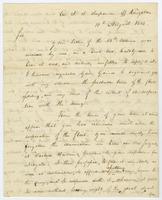
Conflict among American military leaders
Letter from Commodore Isaac Chauncey to General Jacob Brown. August 10, 1814
In the summer of 1814, General Jacob Brown was highly critical of Commodore Chauncey, claiming his squadron failed to provide adequate support to Brown’s troops on land. Chauncey was widely viewed as overly cautious in his command. In this letter, Chauncey defended his actions by arguing that naval support would not be practicable or useful and by stauchly defending the independence of the navy: “…Sir the Secretary of the Navy has honoured us with a higher destiny – we are intended to seek out to fight the Enemy fleet. This is the great puropse of the Government in creating the Fleet and I shall not be diverted, in my efforts to achieve it, by any sinister attempt, to reduce us either subordinate to, or an appendage of, the Army” (image 5).
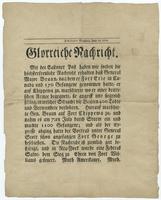
Chippewa victory announced – in German
Glorreische nachricht. 1814.
A German language broadside printed in Easton, Pennsylvania announced the taking of Fort Erie and the American victory at the Battle of Chippewa.
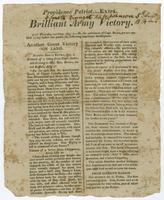
News Report on Lundy’s Lane
Providence Patriot, Extra. 1814.
The headline of this broadside reporting on the Battle of Lundy’s Lane trumpets a “Brilliant army victory,” but the letters published on the broadside are more circumspect. One reads: “The loss on each side is immense,” and concludes, “This action furnishes another evidence, that Americans have skill and valor to conquer upon land as well as upon the ocean.”
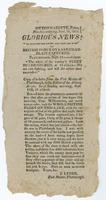
Broadside about Lake Champlain action
Oswego Gazette, extra. September 19, 1814.
A broadside trumpeting the American victory at Lake Champlain and expressing anxiety about the land action at Plattsburg. Perhaps in haste to spread the news of the victory, the typesetter left the “s” out of Oswego.
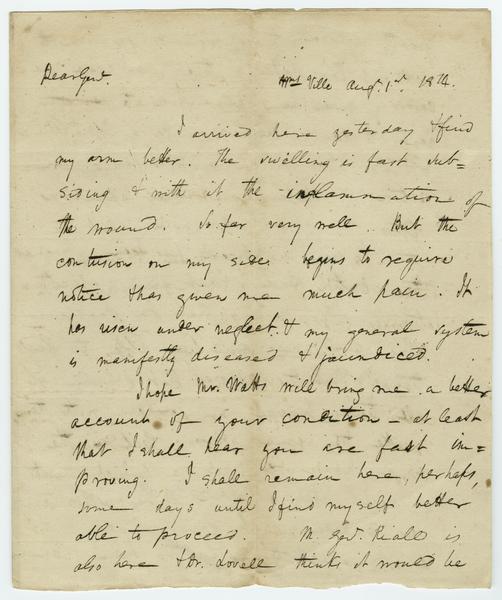
On the treatment of enemy officers
Letter from Brigadier General Winfield Scott to Major General Jacob Brown. August 1, 1814
Both Scott and Brown were wounded in the Battle of Lundy’s Lane. Several days after the battle, Scott wrote of his own recuperation and that of other American and British officers. He was concerned about the medical care of British officers, as the party traveled away from the front: “It seems no surgeon has been assigned these British offiers that an expectation is entertained that Dr. Woodberry who attends me will be able to dress them. But this supposes that I shall at all times travel in company with them, make the same stages; sleep in the same house etc., not one of which events is again likely to happen, as they will tomorrow precede me by several days…”


